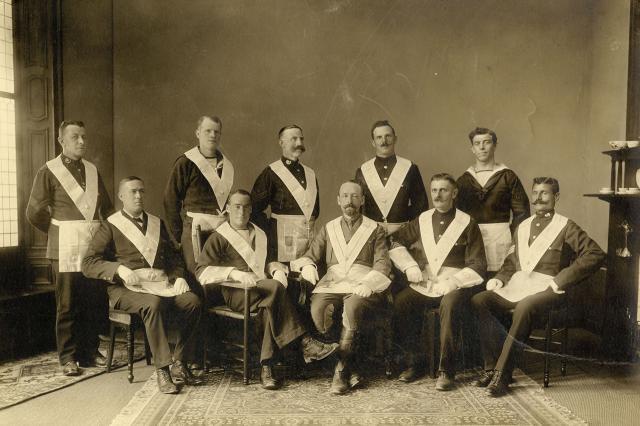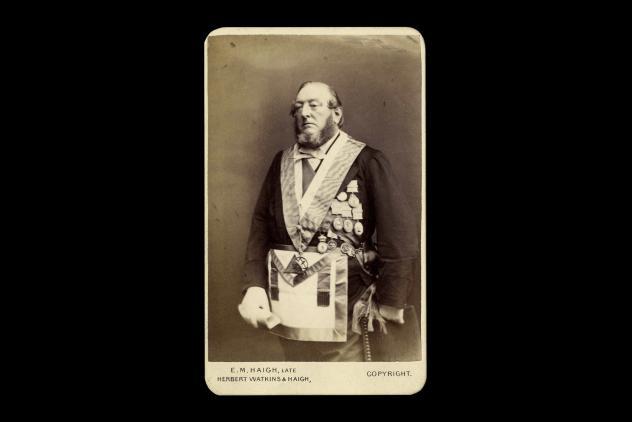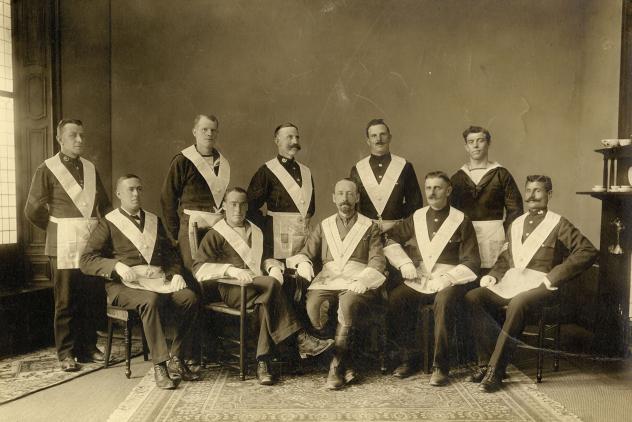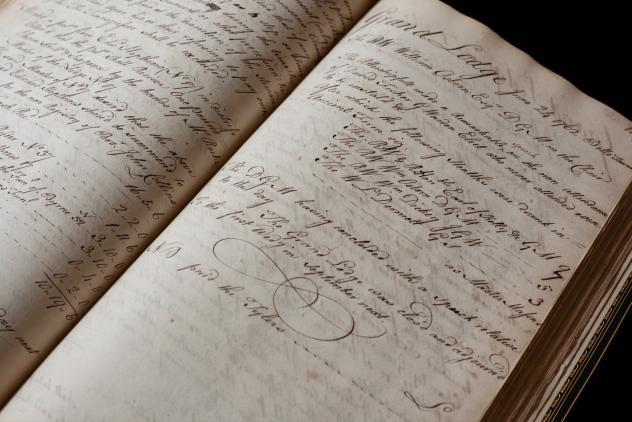We don't always start our family history search by walking into a museum, library or archives. So most of the time it starts at home, in front of the computer. Museum of Freemasonry's Archivist and Records Manager Susan Snell describes how you can get started online, what we have on Ancestry, and why you should get to know it.
What is it?
We partnered with Ancestry a few years ago to make 1.7 million names of freemasons available online for research. If you are interested in family history, this resource can help you to find out about a freemason alongside other personal information. You can access Grand Lodge membership registers covering the period 1751 to 1921.
Ancestry.co.uk is a subscription-based service so you will need to pay for it, but we provide free access in the Museum when we're open. If you don’t have a subscription, and you can't get to the Museum, look out for one of the free trials on offer to get you started.
To find our records on Ancestry, search for ‘Grand Lodge England’ in the Card Catalogue. You can look for freemasons, find out about lodge(s) they joined and how long they were a member. Some entries include details about a member’s age, occupation and address.
Key tools
With such a huge database of names there is no doubt the records on Ancestry are an important tool for you. However, there are other tools in the box to help you uncover more.
Some of the information that you find on Ancestry includes a lodge name and number. When you get this you may want to pop over to Lane's Masonic Records. If you want to know more about the lodge that your ancestor joined, then take a look at this amazing resource, which provides information about where and when the lodge met, and changes to its number over time.
Do you have a celebrity in the family? It may also worth searching for your ancestor in Masonic Periodicals Online. This digital resource is also free to use, featuring searchable digitised copies of magazines printed for freemasons from 1793 to 1906.
Our online catalogue may include references to your ancestor in documents in our archives – this includes names of people who were not freemasons but who worked for or lived in buildings purchased by Grand Lodge. Many of our portrait photographs or engravings of members are included in our online catalogue, so you may be lucky and find a picture with a biography.
Details for some of our archives are also included in The National Archives’ online catalogue. With a dedicated space for research guides on their website The National Archives is a great place to learn more about searching online.
If your ancestor went to the freemasons girls’ or boys’ schools or received local education support from these charities, then we can check name indexes for surviving petition documents. You can email us about this via our Enquiries page.
Below is the first video lecture from Open Lectures on Freemasonry, a new initiative to bring the history of freemasonry to the wider public through digital media. This particular lecture discusses the resources available online.
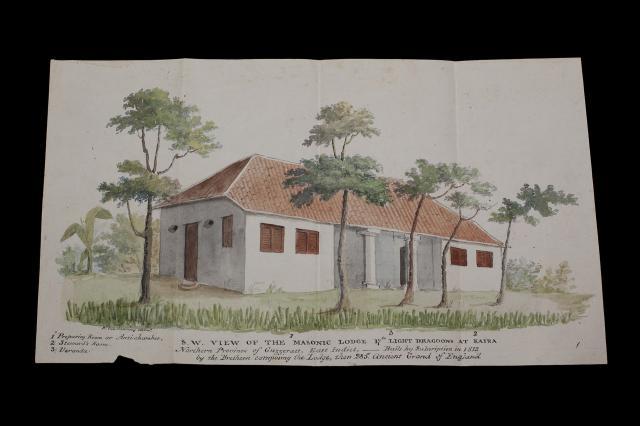
Family stories
Finding membership information can be very rewarding and help to unlock long lost memories. I remember helping Peter, whose ancestor served with the army in India. There are no Census records for that country but his ancestor was listed in the membership registers as a freemason. Peter was able to discover where his great, great grandfather lived in India by looking at lodge annual returns. Information in the membership registers can help you to find other records at the Museum.
I also remember helping another visitor who was adopted as a baby. An active freemason, he was delighted to find out that his birth family’s ancestors in South Africa were also members. It was a very moving experience to help him connect to his life story.
While access to documents such as annual returns isn’t available, keep in touch by signing up to our newsletter. You can find out more and obtain copies of documents when we are open.
